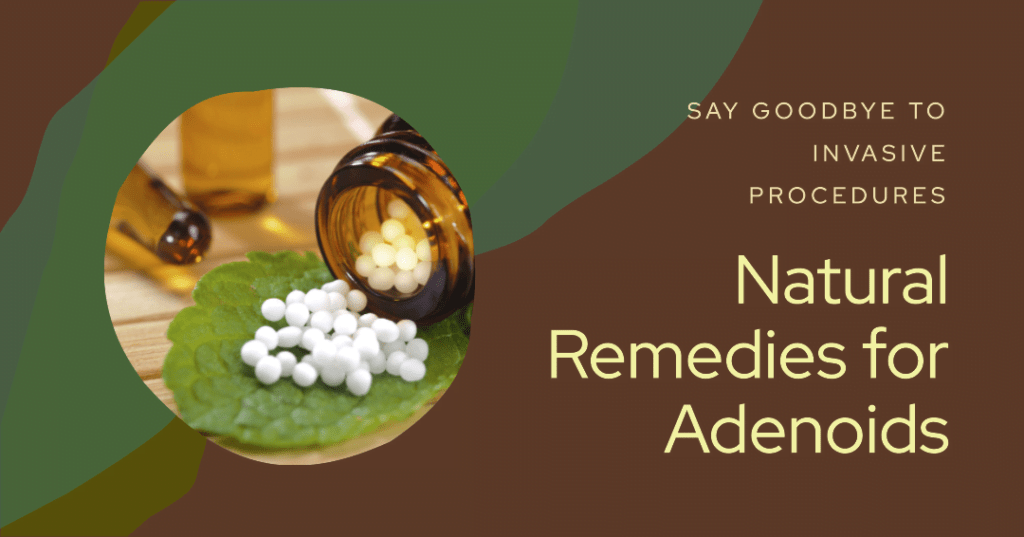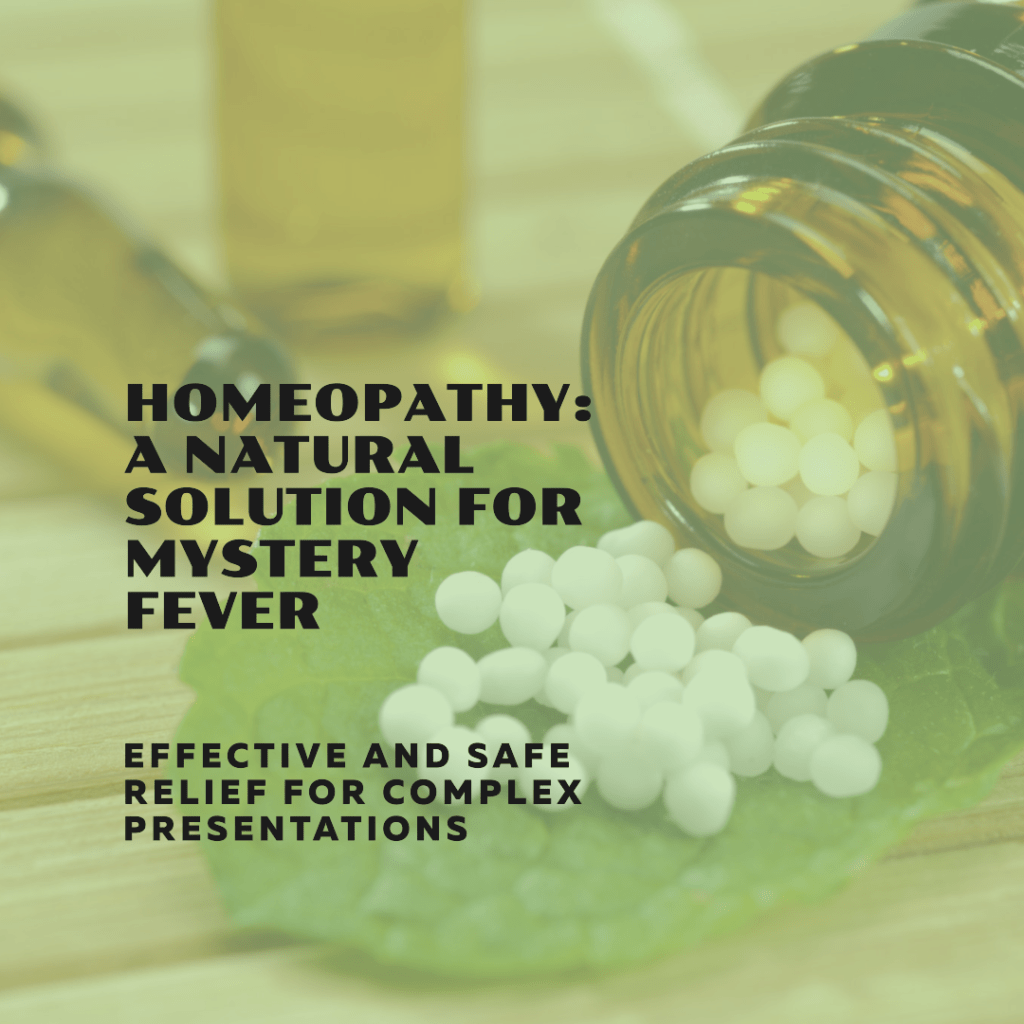Homeopathic Treatment for Adenoids: Dealing with adenoid issues can be challenging, especially when surgery is not the recommended solution and you are looking for. If you or a loved one is grappling with adenoid-related problems, you might be interested in natural treatment options. Many individuals are turning to holistic and homeopathic methods to steer clear of invasive procedures and foster a balanced state of health. In this article, we'll explore various natural treatments for adenoids, ranging from lifestyle changes to homeopathic remedies, herbal supplements, and alternative therapies.

Table of Contents
Homeopathic Treatment for Adenoids, Key Takeaways:
- Homeopathic Treatment for Adenoids can involve natural and holistic approaches.
- Homeopathic Treatment for Adenoids emphasizes gentle and individualized treatment.
- Lifestyle changes, such as diet, exercise, and sleep, can enhance overall well-being and alleviate adenoid-related symptoms.
- Herbal supplements and essential oils with Homeopathic Treatment for Adenoids, may offer anti-inflammatory and soothing properties for Adenoiditis relief, but not recommended in classical homoeopathy.
- Alternative therapies, like acupuncture and breathing exercises, could provide relief from adenoid-related issues.
Understanding Adenoiditis: Symptoms and Causes
What are adenoids? Adenoids are tissues located at the back of the nasal cavity near the opening of the Eustachian tubes. They play a role in the immune system by helping to fend off infections that enter the nose and mouth.
Symptoms of Adenoiditis
When adenoids become inflamed or enlarged, they can lead to various unpleasant symptoms, including difficulty breathing through the nose, mouth breathing, sleep disturbances (such as snoring or sleep apnea), nasal congestion, ear pain, and more. Seeking medical attention for an accurate diagnosis is crucial if you or your child experiences these symptoms.
Causes of Adenoiditis
The causes of adenoid enlargement or inflammation can vary, with recurrent infections, allergies, genetic predisposition, and exposure to environmental irritants being common factors. Sometimes, underlying medical conditions like a cleft palate or Down syndrome can contribute to adenoid issues.
Conventional Treatments for Adenoiditis: Surgery
Adenoidectomy: Surgery for Adenoiditis
Adenoidectomy, the surgical removal of adenoids, is a common recommendation for persistent adenoid-related problems. While surgery may be necessary in some cases, it's important to weigh the potential benefits against the risks. Complications, including bleeding, infection, and damage to surrounding tissues, are associated with adenoidectomy.
When is surgery recommended?
Surgery is typically recommended for those experiencing persistent or severe symptoms such as difficulty breathing, recurrent ear infections, or sleep apnea. It may also be considered if other treatments prove ineffective or if the adenoids are chronically infected.
Benefits of Adenoidectomy
Improved breathing is a primary benefit of adenoidectomy, as it allows air to flow more freely through the nasal passages, reducing congestion and enhancing oxygen flow. Removal of adenoids can also reduce the frequency of ear infections, leading to improved hearing and reduced ear pain.
Risks of Adenoidectomy
Complications associated with adenoidectomy include bleeding, infection, and potential damage to surrounding tissues. In some cases, adenoids may grow back, necessitating additional surgery. It's essential to thoroughly discuss the potential risks and benefits with a classical homoeopath before opting for adenoidectomy.
The Holistic Approach: Lifestyle Changes
When it comes to natural treatments for adenoids, lifestyle changes can significantly impact overall health and well-being. Consider the following holistic approaches:
1. Dietary Changes: Adjusting your diet can help reduce inflammation and promote overall health. Include anti-inflammatory foods such as fruits, vegetables, whole grains, fatty fish, nuts, seeds, and herbs/spices like turmeric and ginger. Avoid processed foods, sugary drinks, and excess caffeine for better adenoid health.
2. Exercise: Regular physical activity improves overall immune function and promotes a healthy weight, reducing adenoid-related symptoms. Aim for at least 30 minutes of moderate exercise, like walking or cycling, most days of the week.
3. Sleep Hygiene: Quality sleep is crucial for overall health and can help reduce adenoid inflammation. Establish a regular sleep schedule, create a comfortable sleep environment, and avoid electronics before bedtime.
4. Stress Reduction Techniques: Stress can worsen adenoid-related symptoms. Incorporate stress-reducing activities such as yoga, meditation, or deep breathing into your daily routine.
5. Hydration: Drinking plenty of water helps reduce inflammation and promotes overall well-being. Aim for at least eight glasses of water daily and avoid sugary drinks and excessive caffeine.
Implementing these lifestyle changes provides a gentle and practical approach to managing adenoid-related symptoms.
Remedies for Homeopathic Treatment for Adenoids
Homeopathic Treatment for Adenoids offers a gentle and individualized approach to treating adenoids, aiming to support the body's natural healing processes. Here are some commonly used homeopathic remedies for Adenoiditis:
- Pulsatilla: For thick nasal discharge, difficulty breathing at night, and emotional sensitivity. Often recommended for children with adenoid issues.
- Calcaria carbonica: Chilly. Glandular. Sour. Soft. Delayed. Faulty bony development - open fontanelles.
- Kali bichromicum: Useful for thick nasal discharge, difficulty breathing through the nose, and postnasal drip. May benefit individuals with chronic adenoid problems.
- Baryta carbonica: Recommended for those with enlarged adenoids, difficulty swallowing, and frequent sore throats, especially if they have a weakened immune system.
- Tuberculinum: Discontented, disobedient, destructive, obstinate. Romantic, longs for nature. Hyperactivity. Need for change and travel. Recurring infectious illnesses in childhood. Developmental defects, failure to thrive. Adenopathy.
- Carcinosin: Strong, passionate, intense, sensitive, sympathetic, timid, fastidious. Desire for travel and excitement. Desires dancing and music. Loves the excitement of thunderstorms. Suppression and abuse during childhood. > at sea. Moles, naevi, blue sclera. Sleeps in knee-chest position.
- Thuja occidentalis: Sycotic remedy. Lack of self esteem and confidence, feelings of worthlessness. Feels unattractive. Depression. Hiding, secretiveness, deceptiveness, lies. Do not want others to know what they exactly are, feel others won't like them that way. Fixed ideas, delusions. Effects of suppressed gonorrhoea, warts and vaccinations. Growths and tumours. Warts. Condylomatas. Perspiration-oily, sweet smelling or offensive.
- Baryta Muriatica: Arterioscerosis and cerebral affections. Aneurism. White blood corpuscles increased. Hypertension and vascular degeneration. High systolic pressure with comparatively low diastolic pressure. Induration and narrowing of the cardiac orifice with pain immediately after eating, with epigastric tenderness. Icy coldness of body with paralysis. Voluntary muscular power gone but perfectly sensible.
Homeopathic Treatment for Adenoids: remedies should be chosen based on individual symptoms and constitution, so it's advisable to consult with a qualified homeopath for personalized treatment. Homeopathy can complement conventional treatments, but it's crucial to inform healthcare professionals about any remedies being used.
The Holistic Approach: Herbal Supplements for Adenoid Health
Herbal supplements with Homeopathic Treatment for Adenoids (optional), used for centuries to support overall health, can also help alleviate adenoid-related symptoms. These natural treatments aim to reduce inflammation, promote a balanced immune system, and support respiratory health. Popular herbal supplements for adenoid health include:
- Echinacea: Boosts the immune system and reduces inflammation.
- Goldenseal: Reduces inflammation and fights infection.
- Garlic: Possesses antibacterial and anti-inflammatory properties.
- Ginger: Anti-inflammatory and relieves congestion.
- Turmeric: Anti-inflammatory and antioxidant properties.
Caution: Pregnant or lactating women and individuals with specific health conditions should exercise caution when using herbal remedies.
In addition to herbs with Homeopathic Treatment for Adenoids, various natural adenoid treatments, such as nasal irrigation, essential oils, and lifestyle changes, can contribute to improved adenoid health. However, it's crucial to consult with a qualified homeopathic professional before trying any herbal supplements, as some may interact with prescription medications or cause side effects in specific individuals.
Conclusion
Navigating adenoid-related challenges can be complex, particularly when surgery is not the preferred option.
This article has shed light on holistic and homeopathic approaches as alternative avenues for individuals seeking natural remedies.
Understanding adenoids, their symptoms, and causes is crucial for informed decision-making.
While surgery, specifically adenoidectomy, remains a conventional recommendation for severe cases, the holistic approach emphasizes lifestyle changes, including dietary adjustments, regular exercise, and stress reduction techniques.
Furthermore, homeopathic remedies like Pulsatilla, Kali Bichromicum, and Baryta Carbonica provide gentle, individualized options that can complement conventional treatments.
Herbal supplements, such as Echinacea, Goldenseal, Garlic, Ginger, and Turmeric, offer additional support by targeting inflammation and enhancing the immune system.
However, it's imperative to approach these natural remedies with caution, consulting qualified homeopathic doctors, as individual responses may vary, and interactions with existing medications need consideration.
In embracing these holistic measures, individuals can empower themselves with a comprehensive and personalized approach to managing adenoid-related issues while fostering overall well-being.


